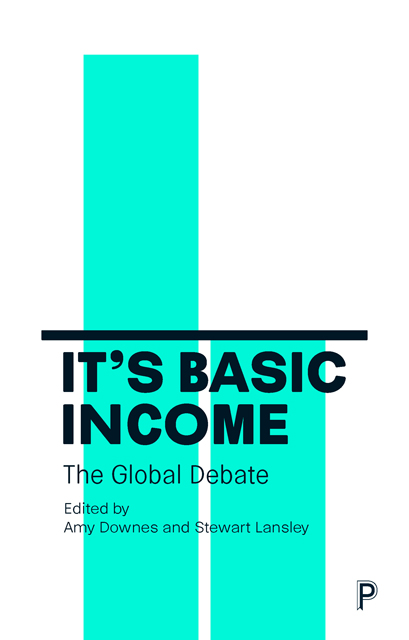26 part II - The Indian experience: The impact of universal basic income on women and girls
Published online by Cambridge University Press: 11 April 2023
Summary
‘One of the most important findings was the emancipatory effect basic income had on groups such as women and children who otherwise have limited voice in decision-making both within the household, and in the community.’
The idea of universal basic income (UBI) is currently creating a lot of buzz in Indian policy circles. While the incumbent government has been vociferous in claiming that the idea has some merit, others have criticised it as likely to have very adverse fiscal implications. There have also been debates on whether UBI is a more effective way of reaching India’s poor than the current complex plethora of subsidies that rest on conditionalities and have been criticised for sluggish delivery. Those who oppose the idea feel it is only an excuse to truncate the welfare state. Irrespective of whether the views come from the left or right, many others believe that UBI’s time has come.
Any proposal to implement an Indian scheme can learn from the lessons of the Madhya Pradesh pilot. The experiment paid all individuals – rich, poor, elderly, women, children, differently abled, those belonging to vulnerable caste groups – the same amount. Crucially, there were no conditions on how the monthly payments ‘should’ be spent. The targeted recipients were informed in advance that they could use the money as they wished, and that there would be no direction from the pilot team. The money was transferred directly either into a bank or a SEWA cooperative account.
Conditions were done away with for two reasons. First, research on conditional cash transfers shows that conditionalities are often expensive to implement. Secondly, the research team wanted to test the hypothesis that people are generally capable of making their own decisions and do so in the best interests of themselves and their families, rather than spending it on ‘private bads’ such as alcohol. That this hypothesis held true was one of the strongest findings of the study, and has resonated with top policymakers in India.
The evaluation drew primarily on panel survey data, case studies, community level surveys and interviews, but also included the tracking of children’s weight-for-age (as a proxy for nutrition) and their attendance and performance in schools.
- Type
- Chapter
- Information
- It's Basic IncomeThe Global Debate, pp. 141 - 144Publisher: Bristol University PressPrint publication year: 2018



